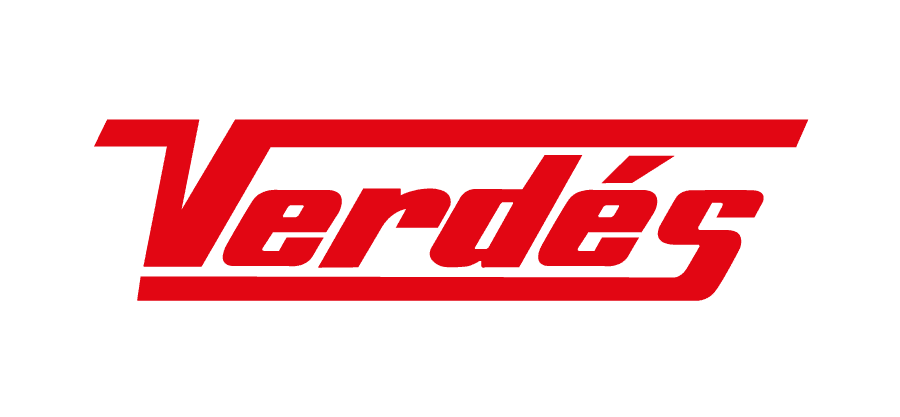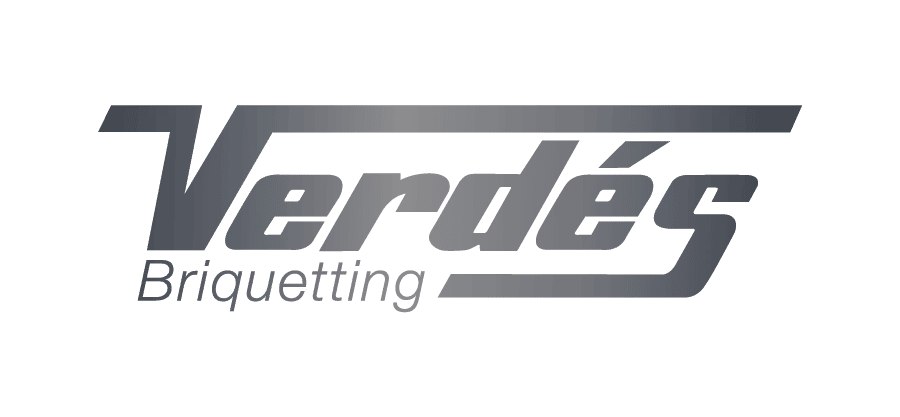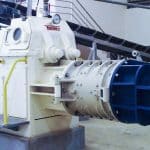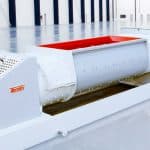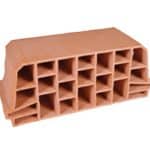28 Jun Verdés, clay extrusion experts for over 80 years
Extrusion is the last process of the clay preparation and shaping phase required for obtaining the desired product — whereas if it is a facebrick, a perforated brick or a roof tile.
Talleres Felipe Verdés set up its first extruder over 80 years ago, although at that time extruders were not designed with trough and vacuum chamber.
This machine worked on the principle of Archimedes’ screw. A rotating helical surface transported clay along a cylindrical shaft of varying cross-section to finally extrude the clay through a die.
Over time, other elements were added — such as the mixer unit — until the first Monobloc was manufactured in 1967. This machine provided significant advantages in terms of accessibility, maintenance and, above all, lower cost and energy consumption.
Later, in the early 90s, Combi extruder models were launched. Their main innovation was a separated mixer body mixer body from the augers body. The performance of this model of extruder was the best so far and ensured optimal energy efficiency. This model was launched to market at the same time as the first frequency inverter applications.
Since then, both Monobloc and Combi models have continued to develop in line with their core operating principle.
Monobloc extruders are mainly known for their compact and efficient design featuring a single motor for the mixing and extrusion processes. The proprietary-design parallel shaft reducer and helical gears control the three main mixing and extrusion axes, delivering the perfect synchronism required for ideal extrusion.
 The Monobloc range goes from a laboratory extruder featuring Ø 75 mm augers to units with Ø 700 mm augers that reach outputs of 45 m3/h.
The Monobloc range goes from a laboratory extruder featuring Ø 75 mm augers to units with Ø 700 mm augers that reach outputs of 45 m3/h.
In 2013, Talleres Felipe Verdés launched the new Magna extruders range, presenting several enhancements in relation to the Combi model. Therefore, we must highlight that right after a couple years of operation our customers have rated them very highly.
These enhancements were aimed at improving equipment efficiency and optimizing maintenance tasks:
- New paddles geometry
- Improved access to the vacuum chamber
- Augers body protectors without bored holes
- The addition of electrical pressure sensors
- Easy dismantling of wear elements
Now, all these improvements have also been implemented on our Monobloc extruders, thus completing the range of Talleres Felipe Verdés extruders and giving a qualitative leap forward to our equipment.

